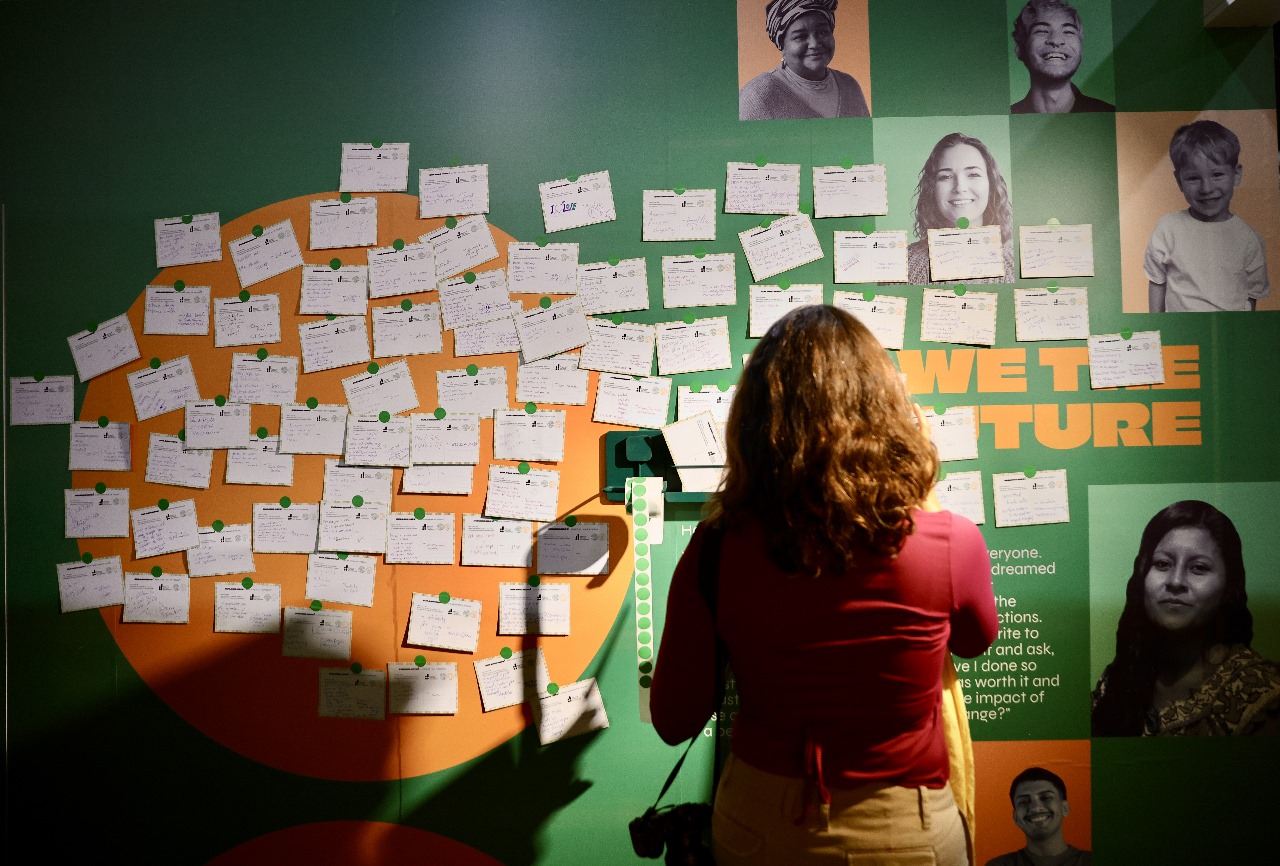Hundreds of postal cards hang on one wall of the Regional Climate Foundations Pavilion. They are letters from the future that each participant imagine they are constructing now. And they are honoured for the work they have done. “I’m so glad you played a part in driving climate action in this region. Now, our world is a much greater place to live in”, wrote Renard Sien, from Malaysia.
The action is part of the exposition ‘Building Hope’, which could be accessed in the PCF pavilion during all the days of COP29, in Baku, Azerbaijan, and that closed its doors this Friday (22). The main idea was to use the emotions of COP’s participants to remind them they are fighting for a collective goal, for a better world for all living beings on the planet.
“Our aim with this exposition was to remind people why they were at the COP, and people’s reaction showed that it worked. There were many texts and comments showing that there is hope in this fight”, says Eduardo Carvalho, the curator of the exposition and the RCF pavilion. Besides the post cards, the exposition had an interactive wall with hidden inspiring messages as well photos and texts.
The post cards were so many that the space became small to all of them. Some had only words of encouragement — “You are doing great”, or “Stay strong, girl” — and others highlighted reasons to stand up: “For the girls in rural Ethiopia who couldn’t make it, I’m here”, or For a world where all types of life can co-exist <3”.
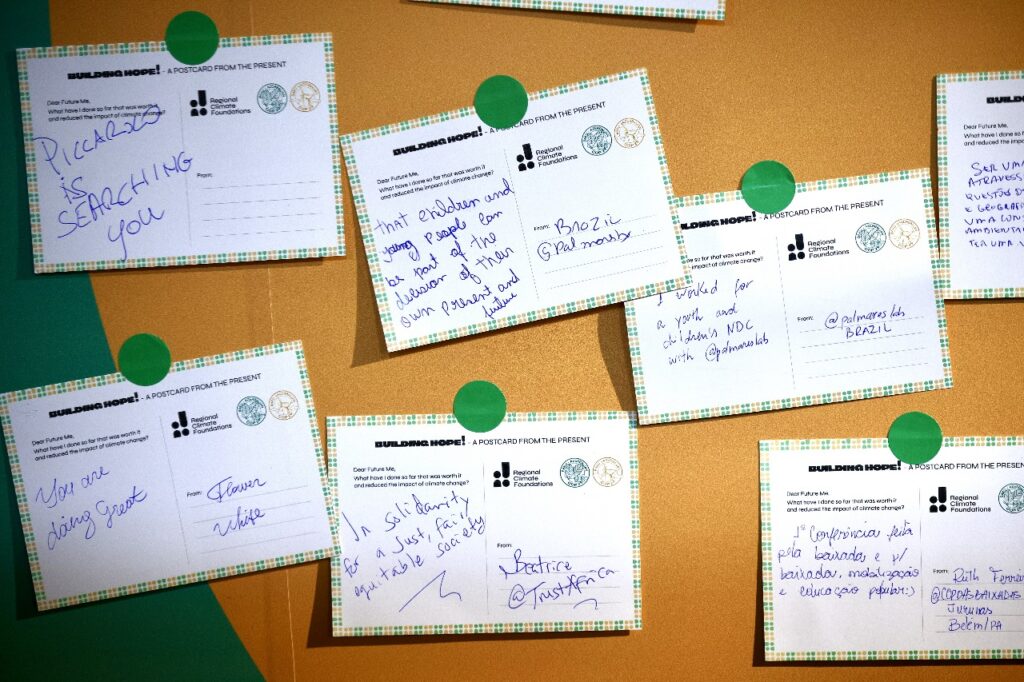
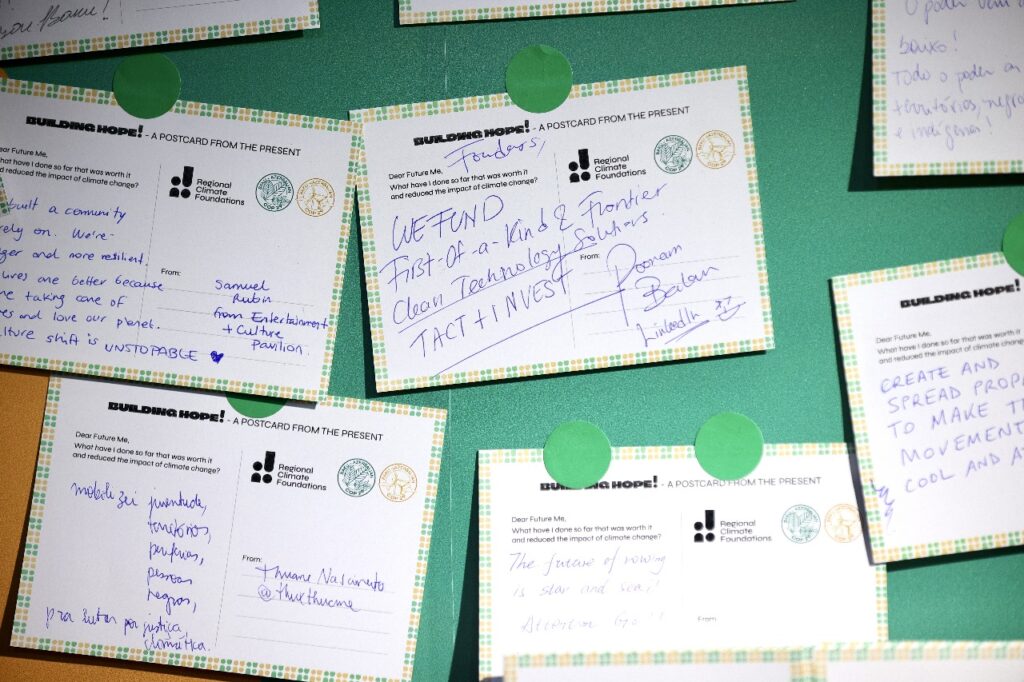
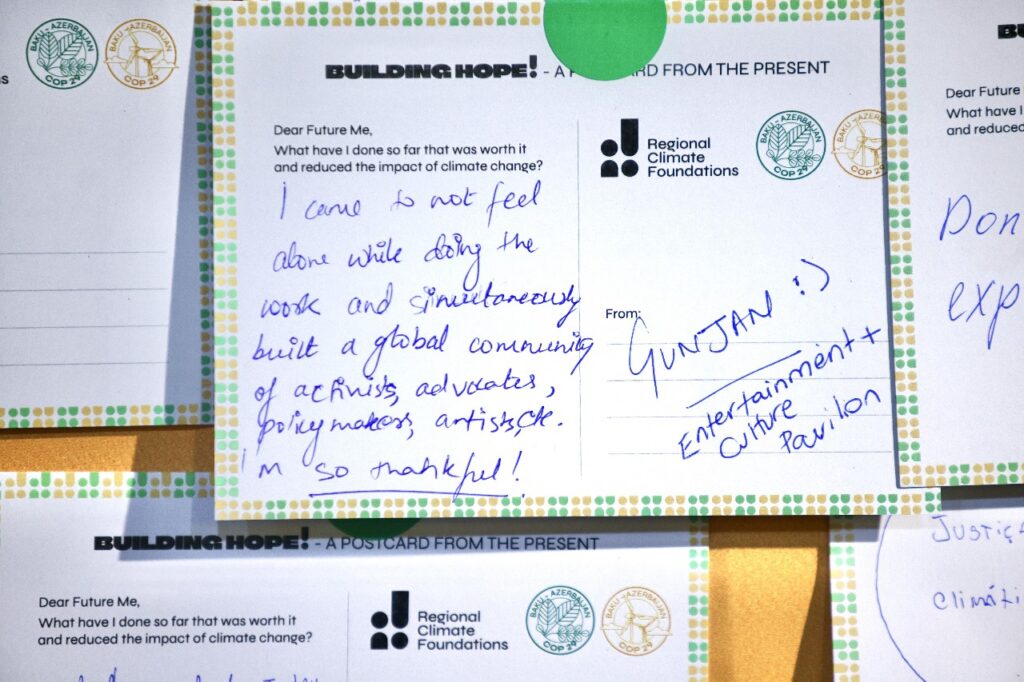
There were post cards saying general messages for the humanity: “Differentiated by culture, united by humanity and ethics”, wrote someone from Egypt. And others really personal: “I came to not feel alone while doing the cook and simultaneously built a global community of activists, advocates, policy makers, artists, etc. I’m so thankful”, registered Gunjam.
Some of the texts addressed specific topics of the climate agenda: the NDCs, energy, climate justice, nature based solutions, youth and women, indigenous people. “People felt re-energised in our pavilion when they saw that the keywords of the negotiations were also reflected there, in a more poetic way”, registers Carvalho.
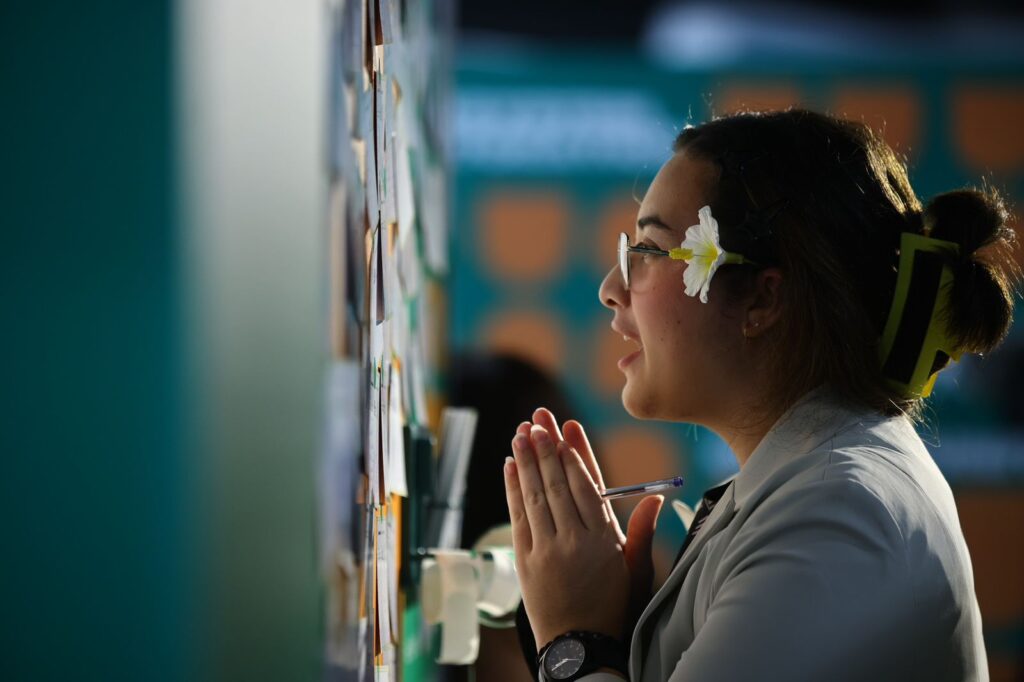
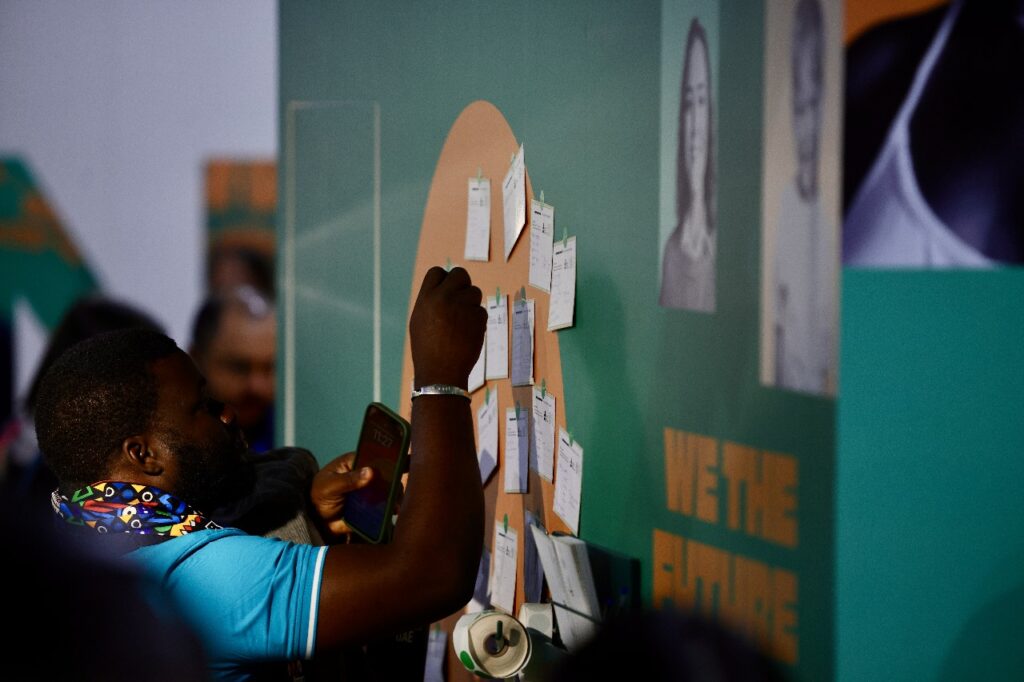
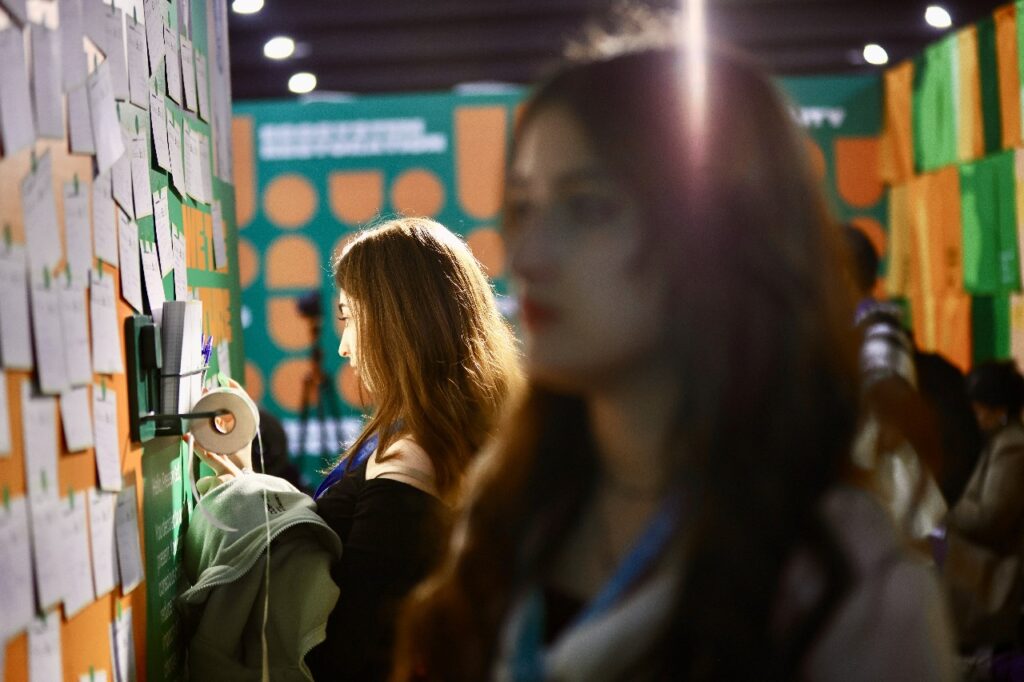
Mostly of the messages were written in English, but there were also texts in Portuguese, Azeri, Mandarin and other languages. Post cards were ‘sent’ from Pakistan, Madagascar, Colombia, Brazil, Brazil, Europe. “We have fulfilled our role of using culture as a platform for the climate agenda. And we’ve only just begun”, promises Eduardo Carvalho, that is also a researcher on the intersection of climate and culture agendas.
He launched during the COP a report about the issue and aim to improve this connection during next year and in particular at COP30, that will be in Brazil, his country. “We aim to be able to use the soft power of culture in Belém to transform people’s imaginations, to create the world we want to build for all species and for our descendants”, conclude.

